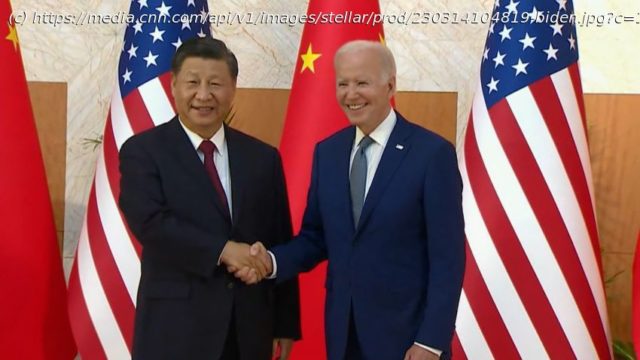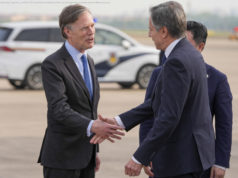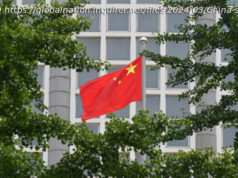Array
When the Honduran President announced last week her country planned to establish diplomatic ties with China, the ripples were felt far beyond this Central American country of population 10 million. To many, it was the latest confirmation of China’s growing clout on the world stage.
The decision by President Xiomara Castro means Honduras will have to sever its relationship with Taiwan, the island democracy that for much of the past 50 years has been locked in a battle for diplomatic recognition with China, its far larger Communist-ruled neighbor.
China claims Taiwan as its territory, and has repeatedly refused to rule out taking the island by force, but the pressure it heaps on Taiwan is not limited to threats about invasion.
It also exerts diplomatic pressure, by insisting that any country wanting official ties with the world’s second largest economy must at the same time refuse to recognize Taiwan.
As a result, a dwindling pool of nations are willing to hold diplomatic relations with the island democracy of 23.5 million.
Before Castro’s announcement, Taiwan had just 14 diplomatic allies – down from the 56 it had in 1971, when it lost recognition from the United Nations, and down from 22 when its President Tsai Ing-wen took office in 2016.
And given that most of Taiwan’s remaining allies are small nations in Latin America and the Pacific – with all of the world’s powerful economies having switched decades ago – it would be easy to paint Castro’s announcement as the latest nail in the coffin for Taiwan’s aspirations for relevance on the world stage.
That’s the narrative China might like to believe – and the version of events that is often repeated in the international media every time Taiwan loses another diplomatic ally.
But a growing body of experts are challenging that received wisdom.
Yes, they say, officially Taiwan may appear to be losing the diplomatic battle, constantly waving goodbye to yet another diplomatic mission. But look deeper and Taiwan has been increasing its influence across the globe by developing close – though unofficial – ties with western countries.
As Lev Nachman, an assistant professor in politics at National Chengchi University, put it, “Taiwan’s diplomatic allies do offer meaningful support for Taiwan, such as allowing official visits to happen. But we often ask, if one day Taiwan has zero formal diplomatic allies, what would really change? And the answer is not that much.”
Unofficial alliances
Take for instance the island’s relationship with the United States.
The US may have withdrawn its diplomatic recognition of Taiwan back in 1979, yet today its unofficial relationship appears as strong as it has been in decades.
The lack of diplomatic ties did not put off then-House Speaker Nancy Pelosi from making a controversial visit to Taipei in August – a visit China responded to angrily by holding unprecedented military drills and firing missiles over the island.
Nor has it dissuaded incumbent US House Speaker Kevin McCarthy from planning to meet Tsai in early April, when she plans to transit the United States en route to Central America, in another trip that is widely expected to raise China’s hackles.
Then there are the advances Taiwan has been making in Europe in recent months – breakthroughs that seem “diplomatic” in all but name.
Accelerated by Russia’s unprovoked invasion of Ukraine and fears about another autocracy’s designs on democratic Taiwan, various European countries have acted in ways suggesting they are supportive of China’s smaller neighbor, even if the Vatican City is its only official ally on the continent.
This month, a minister from Germany, Europe’s biggest economy, became the first in 26 years to visit Taiwan in a trip Berlin billed as an effort to enhance science and technological cooperation – and which it undertook despite Beijing’s protestations.
In January, Taiwan’s military disclosed an exchange with NATO in which one of its lieutenant colonels was sent on a six-month academic training program at an international military college in Italy.






